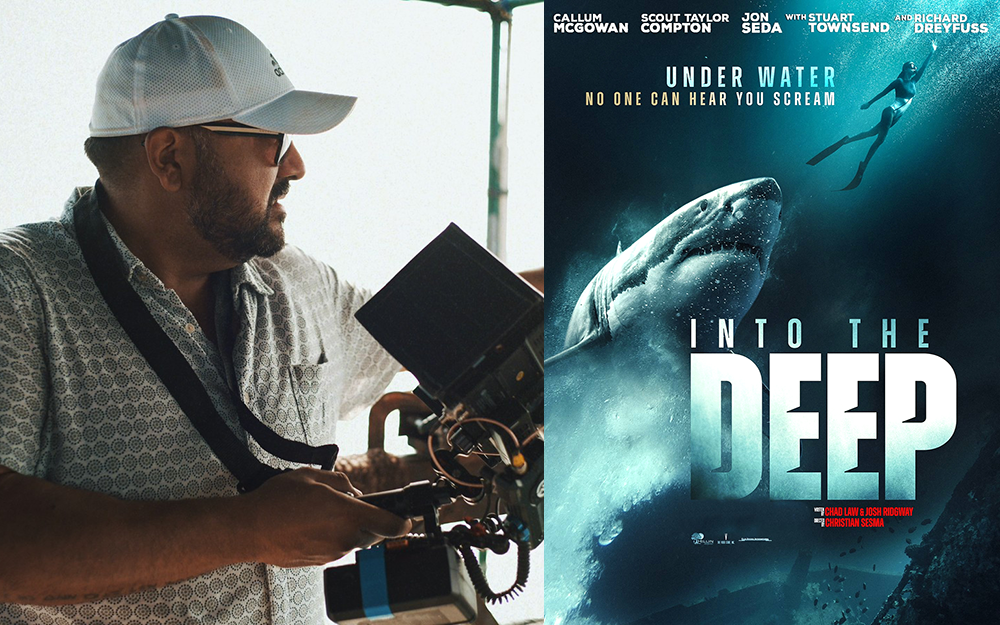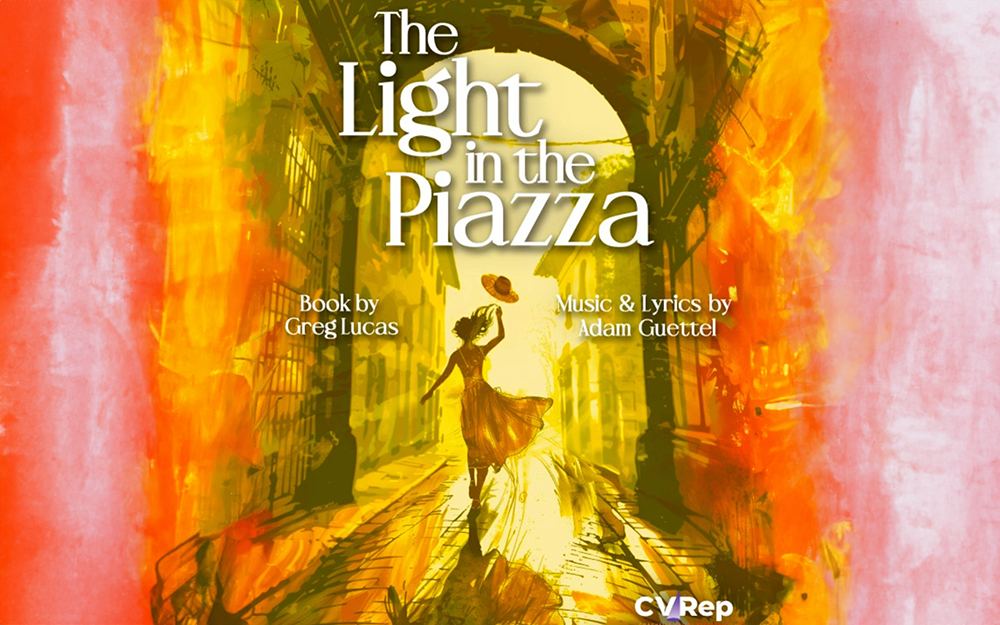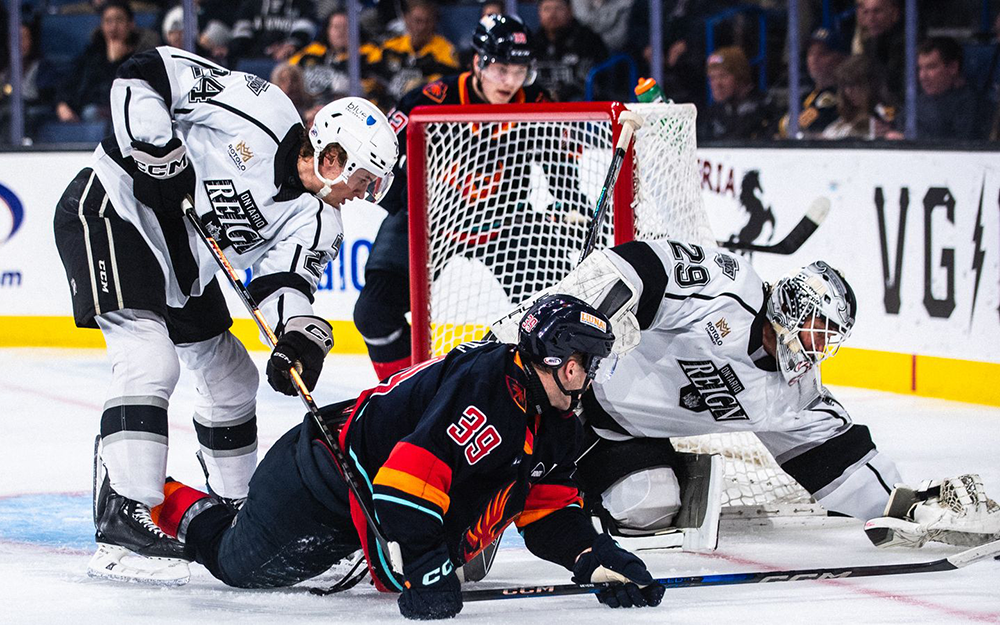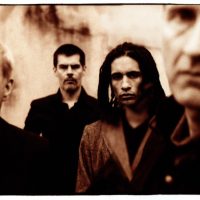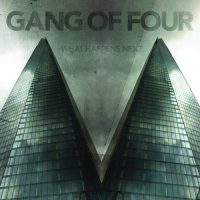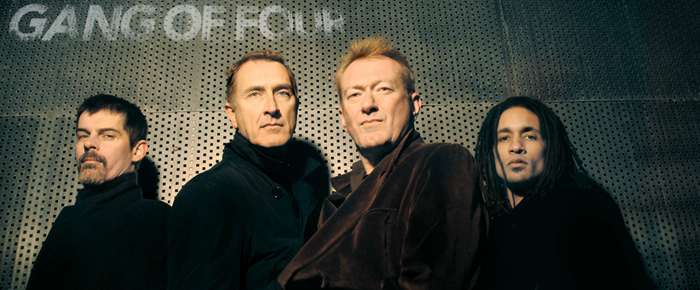
By Eleni P. Austin
Gang Of Four is probably one of the most significant bands of the last 35 years, influencing Red Hot Chilli Peppers, Nirvana, Fugazi, Jane’s Addiction, INXS, Bloc party, Interpol, Futureheads, No Knife, Franz Ferdinand and R.E.M. Chances are, you have probably never heard of them.
Guitarist Andy Gill, vocalist Jon King, bassist Dave Allen and drummer Hugo Burnham met at Leeds University in 1977. Their debut, Entertainment arrived in late 1979.
The sound was stripped down, a brittle collision of Punk and Funk. King’s vocals were dry, deadpan and slightly didactic, occasionally punctuated by his staccato melodica fills. The songs were a revelation. “Damaged Goods” reduced sexual attraction to animal impulse. ”Your kiss so sweet, your sweat so sour, sometimes I’m thinking that I love you, but I know it’s only lust.”
“Guns Before Butter” felt like Benny Goodman’s “Sing Sing Sing” was folded into the Sex Pistols’ “God Save The Queen” and “At Home He’s A Tourist” explored the cultural disconnect. “Anthrax” opened with 90 seconds of sustained guitar feedback before locking into a robotic rhythm. The lyrics, mostly from Jon King, were politically charged, socially conscious and sexually precocious. Best of all, you could dance to it.
Their sophomore effort, Solid Gold arrived in 1981, doubling down on the formula they created with their debut. Not long after Solid Gold was released bassist Dave Allen left Gang Of Four, forming Shriekback with ex-XTC keyboardist, Barry Andrews. After he was replaced by Sara Lee and they recorded their third album, Songs Of The Free, their music became less Punky and more dancey.
Hugo Burnham left the fold in 1983. The band released Hard without him and then called it quits. Andy Gill spent several years working as a producer, (Red Hot Chilli Peppers’ debut, The Balancing Act’s “Curtains” album, the Stranglers, and Killing Joke).
In 1990, A Brief History Of The Twentieth Century arrived. A sort of “hits” compilation, it was the first time Gang Of Four’s music appeared on compact disc. Renewed interest in the band motivated Andy Gill and Jon Gill to reform and record Mall in 1991.
Unfortunately the results were abysmal. Abandoning their original style, the duo relied heavily on synthesized dance grooves and included an unfortunate cover of Bob Marley’s “Soul Rebel.” They almost compensated with the more assured Shrinkwrapped album in 1995.
Another 10 years went by before Gill, King, Allen and Burnham reconvened. By now, their influence was clearly being felt with bands like Interpol, Bloc Party and Franz Ferdinand.
Rather than create new music, the quartet re-recorded songs from their seminal first two releases. It’s hard to believe they felt they could improve on those albums. Actually, Return The Gift felt like an excellent live album. But it allowed them to reclaim and retain the rights to their songs.
Dave Allen and Hugo Burnham again quit the band, but Andy Gill and Jon King soldiered on recruiting bassist Thomas McNeice and drummer Mark Heaney. In 2011 they released the fan-funded album, Content. A rousing return to form, the album received unanimous critical acclaim.
Unfortunately, Jon King has again left the band, with no official explanation given. Andy Gill perseveres, having just recorded and released Gang Of Four’s ninth album, What Happens Now. Perhaps it might be more accurate to re-name the band the Andy Gill Experience or Gang Of One, since he is the only original member now.
Bassist Thomas McNeice is still on hand, but drum duties are split between Mark Heaney and Jonny Finnigan. John “Gaoler” Sterry, formerly of Gaoler’s Daughter, steps in as vocalist, but he is not alone.
In a move worthy of Santana, Andy Gill has included “ringer” vocalists like Alison Mosshart of The Kills, Robbie Furze from The Big Pink and German actor/musician Herbert Groenemeyer, (“Das Boot”).
The album kicks into gear with “Where The Nightingale Sings.” So far, so good, thudding percussion threads through a modal melody as Gill weaves in splintery chunks of sustain. The lyrics are a stinging indictment of Great Britain’s history of Imperialist rule. “Force feed yourself sentimentality, with golden age mythology/ A feudal order no more, next you’ll talk of racial purity.”
Alison Mosshart pops up on two tracks. “Broken Talk” is braced by a clattery, fractious, four-on-the-floor-Disco rhythm. Twitchy guitar riffs slice through the melody like a circular saw. The lyrics concern society’s reliance on pharmaceuticals as the ultimate panacea. “He trusts in fate, but he checks sell-by-dates/Self-medicator getting ill, shakes but he’s steady/Deteriorating, will he recuperate, it may come too late.”
The second Mosshart track is “England’s In My Bones.” Luckily, throbbing bass lines, whiplash guitar riffs and a roiling backbeat nearly camouflage jingoistic lyrics that are the obverse of the anti-British screed on the “Nightingale” song. No disrespect to Mosshart, but her distaff vocals are a distraction.
Three tracks grind the action to a halt. “The Dying Rays” feature the dour vocals of Herbert Gronemeyer, (reminiscent of Peter Gabriel or late period Bowie). Thrumming piano notes and a slowed down Reggae rhythm give the song soporific, spectral groove.
“Obey The Ghost” is robotic and industrial (yuck). The lyrics are vaguely dystopian. They also take easy aim at society’s shallow 21st century preoccupations. “We’re Facebook friends with celebrities, hold my hand in the community/And irony is luxury.”
“First World Citizen” is a ham-fisted critique of Western culture. Over scattershot, machine gun riff-age the lyrics vaguely reference someone escaping oppression. “She walked out of the state in flames, crossed over the 38th parallel/ Hitched a ride to the west, big appetites those American guys, chew up whatever the dollar buys.”
The best songs here, “Isle Of Dogs” and “Stranded,” hew more closely to the traditional Gang Of Four paradigm. The former weds a pounding backbeat to stuttery, angular guitar. The lyrics paint a vivid portrait of a venal British despot.
The latter is anchored by a kinetic rhythm and power chords drenched in feedback. Gaoler shares the vocals with Gail Ann Dorsey, who has played bass and sung with Tears For Fears, as well as the B-52’s and David Bowie. The wildly unsubtle lyrics plop the listener into a conversation with a materialistic douchebag who’s turn-ons include “fucking and money.”
“Graven Image” is a complete piece of shite. Lumbering and gravid, the lyrics advise the audience to “endure this life patiently.” Good advice when listening to this record.
The album closes with “Dead Souls” The track is built around a snake-charmer guitar hook, and not much more. Hopefully very little of this material will be included in their live set. Gill and his band mates have just begun a U.S. tour which includes a stop at Pappy & Harriet’s at the end of March.
What Happens Next is an unmitigated disaster. The tactic of using different singers for different songs dilutes the album’s sound and divides the listener’s attention.
After suffering through this tedious effort, Gang Of Four fans, should cleanse their musical palettes by revisiting the band’s early classics. Thankfully that brilliance will never fade.









